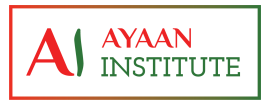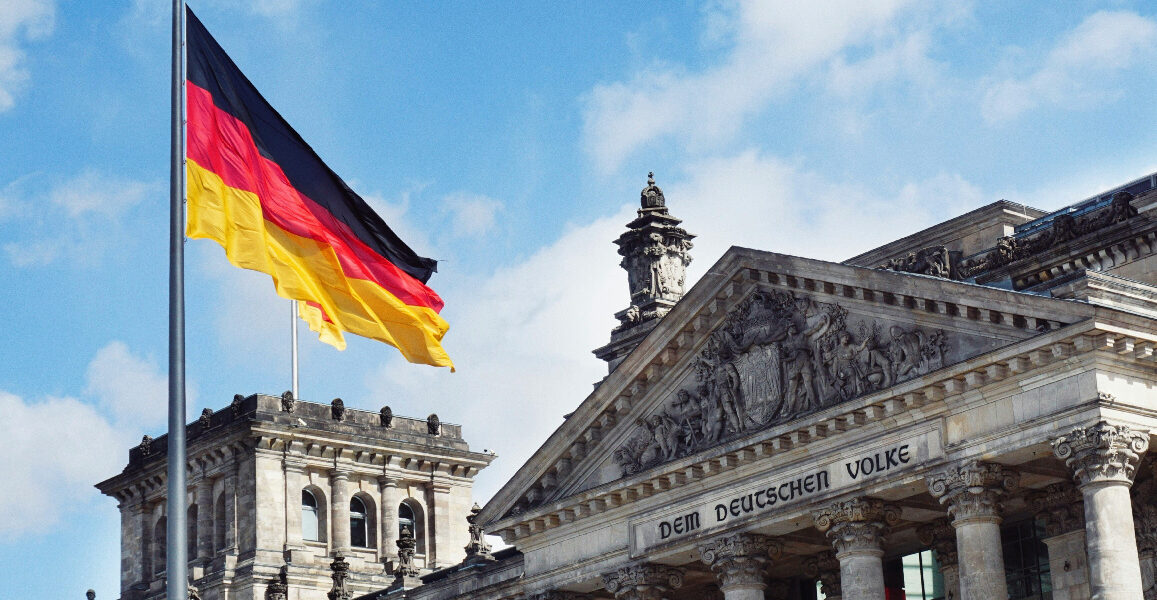Areeba Sherwani, a Research Associate at the Ayaan Institute, argues that the forthcoming federal elections in Germany on February 23rd may shape Europe’s future political direction.
The German Fall: The Sick Man of Europe Returns
“Die Axt im Haus erspart den Zimmermann.”
– A German proverb
A popular German proverb sums up Europe’s current predicament well. “Die Axt im Haus erspart den Zimmermann.” It translates as “The axe in the house saves the carpenter.” The saying comes from Friedrich Schiller’s 1803 play Wilhelm Tell, which narrates the legendary story of the Swiss folk hero who resisted Austrian rule. In the play, the character William Tell uses these words to emphasise the importance of independence and self-reliance. It has since become a general phrase of wisdom among German-speaking people. Germany appears not to have heeded the advice of its most famous proverb.
Germany, long hailed as Europe’s economic powerhouse and political anchor, is facing unprecedented challenges. The recent collapse of its traffic-light coalition government, led by Chancellor Olaf Scholz, coupled with deepening economic troubles and a second Donald Trump presidency in the United States, has left Germany and the European Union (EU) facing political and economic turmoil.
Formed in 2021, the coalition of Scholz’s Social Democratic Party (SPD), the environmentalist Greens, and the Free Democratic Party (FDP) was fraught with ideological differences. The coalition’s collapse was precipitated by Chancellor Scholz’s dismissal of Finance Minister Christian Lindner of the FDP over disputes regarding budgetary policies to revive Germany’s economy. Scholz’s proposal to loosen the debt brake and inject €10 billion into the 2025 federal budget clashed with Lindner’s staunch opposition to further borrowing, advocating for tax and welfare cuts instead. This dispute fractured trust within the coalition and highlighted the deep economic and ideological divides plaguing Germany’s leadership.
Germany now faces snap elections on 23rd February, delayed by a surprising logistical issue: a shortage of ballot paper. While seemingly minor, this logistical setback underscores the broader inefficiencies and challenges facing Germany’s administrative machinery.
The Energiewende Crisis
Following World War II’s devastation, West Germany’s recovery was driven by America’s Marshall Plan, which provided $1.4 billion in aid to rebuild infrastructure and industry. Economic reforms in 1948 stabilised the currency and laid the groundwork for a market-oriented economy. By 2010, Germany emerged as Europe’s economic leader, driven by export-oriented growth and fiscal discipline, and became the third-largest economy in the world.
Today, Germany is in its second consecutive year of recession, re-earning the moniker “The Sick Man of Europe.” Its projected 2024 GDP growth was 0%, starkly contrasting with France’s 4.1% and Italy’s 5.5% growth over the past five years.
Like many other nations, Germany embarked on a significant transition towards renewable energy, aiming to fulfil at least 50% of its energy requirements through renewable sources by 2030. This ambitious initiative sought to position Germany as a global leader in sustainable energy solutions.
A critical component of this transition was the planned phase-out of nuclear energy. Germany’s move from nuclear power dates back to the 1980s, but it gained momentum following the Fukushima nuclear disaster in 2011. This disaster expedited Germany’s decision to eliminate nuclear power entirely, culminating in the complete shutdown of its nuclear plants by 2022. While this decision was aligned with public sentiment, it left Germany increasingly reliant on energy imports, mainly from Russia.
Before the Ukraine war, Russia supplied approximately 30-35% of Germany’s energy in the form of inexpensive natural gas. This low-cost energy source was vital to the manufacturing sector, the backbone of Germany’s economy. However, the geopolitical landscape shifted dramatically when the US intensified efforts to isolate Russia globally through the Countering America’s Adversaries Through Sanctions Act (CAATSA). In retaliation, Russia ceased its gas exports to Germany.
Despite the potential for direct gas imports through the Nord Stream pipeline, geopolitical constraints forced Germany to seek alternative energy sources. This disruption resulted in a staggering 40% surge in energy prices. Today, German households and industries alike grapple with exorbitant energy costs. According to Clean Energy Wire, German households are paying 74% more for gas than before the Ukraine war.
Germany’s economic model, heavily reliant on its manufacturing sector, has also been deeply affected. The manufacturing sector’s contribution to GDP has contracted by 6.3%, declining from 25%. A Deutsche Bank study highlights a broader trend, with Germany’s industrial production dropping by 9% since 2018.
Compounding these challenges are structural weaknesses, including an ageing population, rising labour costs, and pervasive bureaucracy. German industries, particularly the automobile sector, face mounting competition from Chinese manufacturers benefiting from overcapacity. For the first time in its 87-year history, Volkswagen plans to shutter three factories in Germany and lay off thousands of workers.
U.S. Sanctions and European Dependence
The US has a long history of employing economic sanctions to influence its foreign policy for geopolitical gains, often with significant collateral effects on Europe. The US sanctions on Russia, designed to limit Moscow’s access to global energy markets, have worsened Europe’s energy crisis, forcing Europe to pay higher prices for oil and gas via third-party routes. As Russian crude flows through India for refining and subsequent export to the EU, European countries are unwittingly purchasing oil products sourced initially from Russia, bypassing certain sanctions. Around 20 of the 27 EU countries imported refined products from India at higher prices. This complex trade route has significantly inflated energy costs, contributing to a surge in inflation across Europe.
The economic instability triggered by soaring energy bills has destabilised governments across Europe. The strain on leaders to balance sanctions and energy needs has eroded public confidence, culminating in the fall of governments. Germany’s reliance on cheap Russian gas left it vulnerable to supply disruptions, demonstrating how American foreign policy decisions can cripple governments throughout Europe in just two years.
A Fractured Europe and Rising Uncertainty
Europe faces escalating internal challenges threatening its cohesion and ability to meet strategic goals. In Germany, economic struggles and the financial strain of increased defence spending under the Zeitenwende policy (shift or turning point in energy and defence policy) cast doubt on its leadership and commitments to European security. Hungary, led by Prime Minister Viktor Orban, has obstructed EU collective policies, further complicating unity on defence and geopolitical strategies. Meanwhile, France grapples with political polarisation and the rise of far-right movements, mirroring fragmentation across the continent. These divisions risk triggering a domino effect of decentralisation, and potential exits akin to Brexit, undermining the EU’s stability and ability to act as a unified geopolitical entity.
Donald Trump’s return to the White House has reignited fears of transatlantic disengagement. During his first term, Trump’s “America First” policies strained NATO relations, undermined multilateral agreements, and questioned the value of alliances. Trump’s criticism of NATO and insistence on increased defence spending by European members may strain the alliance further, particularly as Germany struggles with economic and political instability. His unpredictable policies and preference for bilateral deals over multilateral frameworks could marginalise Europe in global diplomacy. In this context of weakened European leadership, the return of Donald Trump to the US presidency introduces additional layers of scepticism.
The Rise of AfD
The Alternative for Germany (AfD) has emerged as one of the most polarising forces in contemporary German politics. Founded in 2013 as a Eurosceptic party in response to the Eurozone crisis, The AfD’s rise to prominence is deeply intertwined with Germany’s recent political and social challenges. The party gained significant traction during the 2015 refugee crisis when Chancellor Angela Merkel’s open-door policy led to an influx of over a million migrants, mainly from Syria.
The AfD has since evolved into a far-right movement capitalising on economic decline, anti-immigration sentiment, nationalist rhetoric, and dissatisfaction with the political establishment. Amid the ongoing tumult in German politics, the AfD has consistently come second in polls, garnering around 20 per cent of the vote. This surge in support positions the party as a formidable player in the next government, with projections suggesting it could secure 142 seats in the Bundestag. Such a result would mark a significant milestone for the AfD, reflecting its growing influence and the shifting dynamics of German society.
At the helm of the AfD is Alice Weidel, the party’s candidate for chancellor, who has cultivated a notable profile both nationally and internationally. Weidel’s ties to high-profile figures such as Elon Musk, his recent address to the AfD rally, and her distinction as the only German leader invited to Donald Trump’s inauguration underscore her unique position within the party. She positions herself as the voice of the ethnic German population that was neglected due to rapid changes brought by globalisation and multiculturalism and warns of the cultural and economic consequences of unchecked immigration.
Weidel emphasises preserving German identity and traditions, which struck a chord with young voters who view immigration as threatening their way of life and identity. In response and fearing the competition, the German state has responded with more authoritarian policies on Palestinian activism, security, and migrants, and even prohibiting the use of Arabic words and terms in public protests.
Economic Crisis and the Rise of Ethno-Nationalism
Germany’s political collapse and economic decline come at a time of great uncertainty for Europe. With a resurgent far-right, rising energy costs, and manufacturing challenges, Germany must navigate a precarious path forward. Simultaneously, U.S. sanctions and the return of Donald Trump threaten to isolate Europe further on the global stage. The collapse of Scholz’s coalition reflects broader political fragmentation. Mainstream parties—SPD, Greens, and FDP—have seen declining popularity, with the far-right Alternative for Deutschland (AfD) and left-wing Sahra Wagenknecht Alliance gaining ground. The AfD’s recent victory in Thuringia marks the first time since World War II that a far-right party has governed a German state. While the opposition CDU-CSU alliance leads in opinion polls, no party is expected to secure a majority, necessitating another coalition government. However, the unwillingness of mainstream parties to work with the AfD complicates the formation of a stable government.
As Germany approaches crucial federal elections, the stakes are high. The election on 23 February will elect the 630 members of the 21st Bundestag. A shift to the far right appears certain, with the right-wing Christian Democrats and their Bavarian sister party, the CSU, polling at 30% and the AfD at 20%. The outcome of the German elections will shape the future of Europe’s largest economy and determine Europe’s ability to tackle geopolitical challenges in an increasingly fragmented multipolar world.
Areeba Sherwani Is A Research Associate at the Ayaan Institute, UK



Leave a Reply